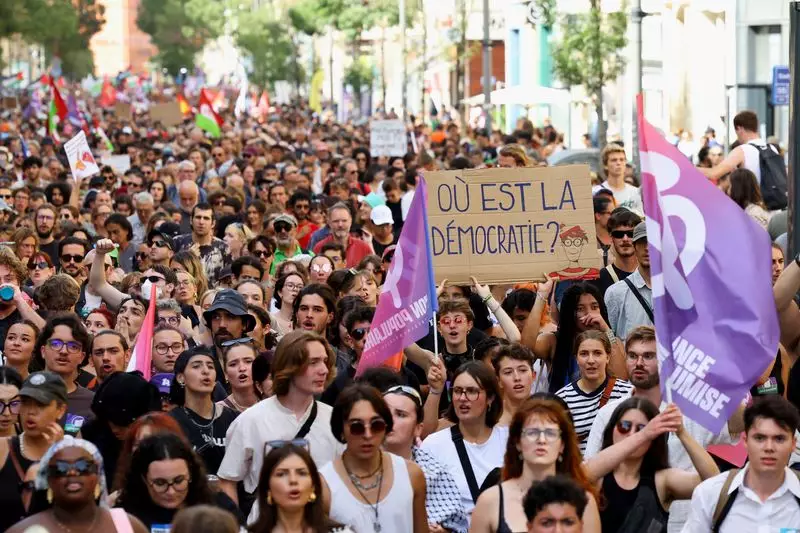Recent events in France have sparked mass protests across the country, all stemming from President Emmanuel Macron’s decision to appoint centre-right Michel Barnier as prime minister. This move has led to accusations from left-wing parties of Macron stealing the legislative elections.
Accusations of Democracy Denial
The left, particularly the far-left France Unbowed (LFI) party, has vehemently criticized Macron, claiming that he is in denial of democracy. The refusal to select the candidate of the New Popular Front (NFP) alliance, which emerged on top during the July vote, has fueled accusations of election theft.
Potential No-Confidence Vote
With Barnier facing the challenging task of forming a government amidst a lack of a clear majority, there is a looming threat of a no-confidence vote. The collaboration between the NFP and the far-right National Rally (RN) presents a real possibility of ousting the prime minister through such a vote.
The National Rally (RN) holds significant power in the current political landscape, with the ability to act as a kingmaker for the new government. Despite giving tentative approval for Barnier, the RN has outlined specific conditions for not backing a no-confidence vote, cementing its role as a key player.
The appointment of Barnier and the subsequent protests and political maneuvering have created a climate of uncertainty in French politics. With a fragile government structure and looming budget discussions, the future direction of the country remains uncertain.
The political turmoil in France highlights deep divisions and power struggles within the country’s leadership. Macron’s decision to appoint Barnier has sparked outrage and accusations of election theft, leading to mass protests and potential no-confidence votes. The influence of RN as a kingmaker further complicates the situation, adding a layer of uncertainty to the already volatile political landscape in France.

